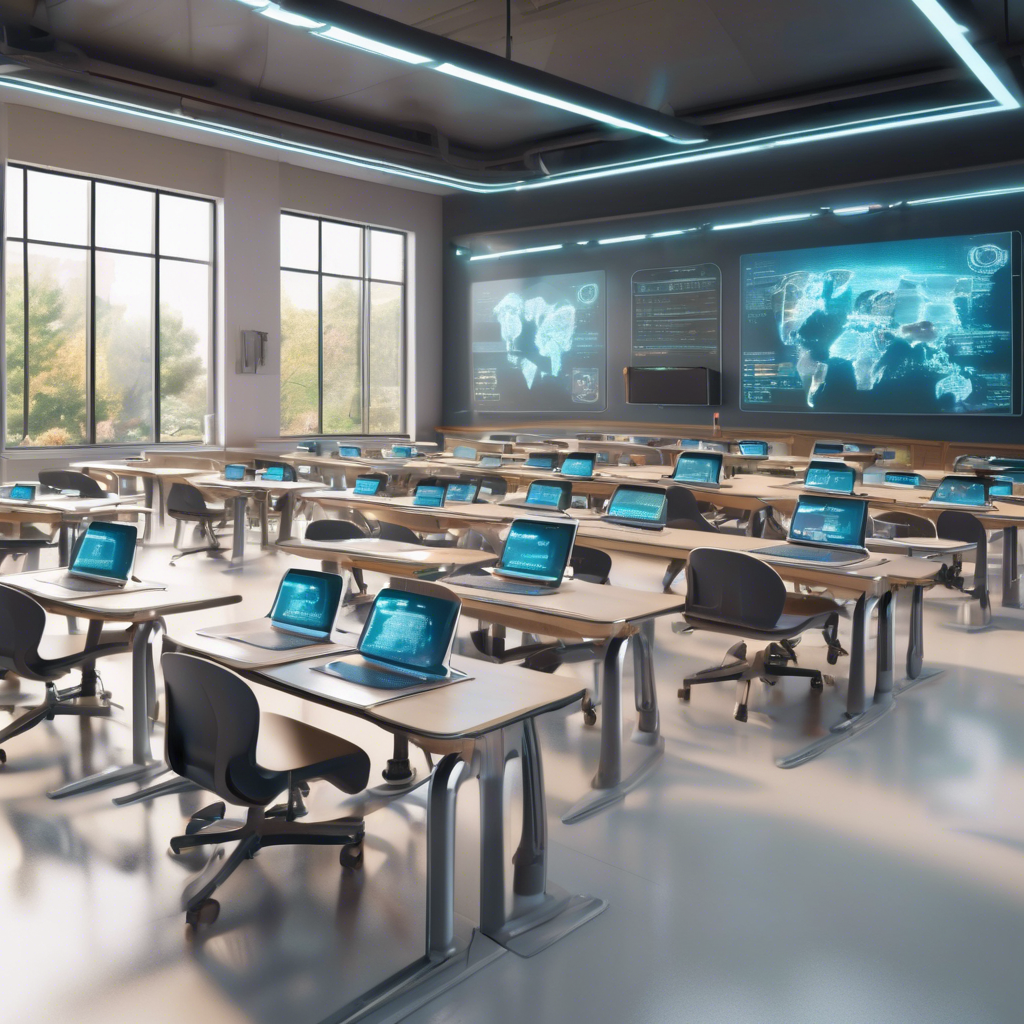Alpha School in Texas Revolutionizes Education with AI-Powered Personalized Learning

Brief news summary
Alpha School, founded in 2022 in Brownsville, Texas by MacKenzie Price, is revolutionizing education with a personalized AI-based model. Serving pre-K to eighth grade, the private school delivers core subjects through AI in just two hours daily, supplemented by afternoon sessions on life skills like public speaking and financial literacy. Without traditional teachers, facilitators support students who reportedly learn up to five times faster, promoting motivation and independence. Many students are children of SpaceX employees, and despite a $10,000 tuition, the school offers need-based financial aid to ensure equity. As part of a growing national trend, Alpha School integrates AI to enhance engagement and redefine educators’ roles, shifting focus toward mentorship and critical thinking. While concerns about screen time remain, the school exemplifies how AI can transform education by personalizing learning and preparing students for future success.At 8:15 a. m. , the scene outside Alpha School in Brownsville, Texas—a dusty border town near Mexico—resembles any other elementary or middle school’s morning hustle. Groups of lively boys and girls enter the plain building, seemingly more joyful than usual for a Tuesday in April. Alpha School, serving pre-K to eighth grade, has transformed traditional classrooms by using personalized artificial intelligence (AI) to deliver a full day’s core academic lessons in just two hours. After these accelerated morning sessions, students focus on critical life skills like public speaking, financial literacy, or even learning to ride a bike in the afternoons. Staff, called "guides" rather than teachers, emphasize independence and nurture students in supportive environments akin to any quality American school district. The innovative approach, launched in 2022, aims to instill a passion for learning, cofounder MacKenzie Price told Newsweek before Alpha’s planned expansion this fall. Inside the school, kindergarteners actively engage in collaborative, logic-based games paired with upbeat music and encouragement. The activities segue into Alpha’s proprietary AI-powered learning platform, where students spend around 30 minutes per core subject—math, English, science, and social studies—using laptops. This personalized learning reportedly enables students to master content up to five times faster than traditional methods. Sarah Schipper, a kindergartener, expressed enthusiasm for Alpha’s tech-based approach, aspiring to be a scientist studying microscopic things, while appreciating the school’s focus on computer learning. This AI-driven education model aligns with national initiatives, exemplified by former President Donald Trump’s recent executive order promoting AI integration in K-12 classrooms. The order establishes a task force, prioritizes AI-focused teacher training grants, and launches a “Presidential Artificial Intelligence Challenge” to foster AI skills among students and educators. However, some educators express skepticism about receiving adequate resources amid administrative challenges in the Department of Education. Back at Alpha, students enjoy the role of guides who facilitate rather than lecture, providing resources instead of answers. Sarah, motivated beyond school hours, often works on mastery assignments at home, sometimes until late evening.
Campus lead Mo Swain highlights that most students complete lessons during school hours, minimizing extra screen time, especially for younger children. This disciplined two-hour AI learning sprint contrasts with nationwide concerns about increasing screen time, with K-12 students averaging 98 minutes daily on school-issued devices, peaking in middle school. Alpha’s mission is to cultivate students’ internal drive, reflected in test scores ranked among the nation’s top 2 percent, according to cofounder Price. Students excel on nationally recognized assessments, learning content comparable to conventional schools but at a faster pace through a unique approach. Price’s journey began over a decade ago in Austin, fueled by personal frustration when traditional schools failed to meet her children’s needs, particularly lacking personalized attention. Inspired to innovate, she developed the Alpha framework emphasizing love for learning and mastery-based tutoring powered by adaptive apps. Following pandemic-driven demand for alternatives, Alpha has expanded beyond Texas into Florida and plans further growth in Texas, Arizona, New York, and California, with tuition varying widely from $10, 000 in Brownsville to $65, 000 in New York. The Brownsville campus serves a diverse student body, including many children of SpaceX employees, benefiting from the nearby SpaceX facility that has energized the local economy in a region marked by high poverty rates. Price views AI delivery as an educational equalizer. Though district and federal officials did not comment, the American Federation of Teachers recognizes AI’s potential if integrated thoughtfully, emphasizing the indispensable role of human educators in fostering deep learning. Inspired by their success, some Alpha students, like seventh-grader Savannah Marrero, aim to create a high school to maintain the school’s accelerated, passion-driven learning beyond eighth grade—addressing gaps in the local public school system. Savannah speaks of a motivating culture where guides encourage a growth mindset, enabling students to believe in their limitless potential. Experts see Alpha as a model prompting reconsideration of public education’s structure. Robin Lake of the Center on Reinventing Public Education suggests districts evaluate how technology and AI might optimize teacher roles, shifting educators from delivering basic instruction to mentoring and fostering critical thinking—a need amplified by budget constraints and stagnant student outcomes. While Alpha’s AI-based model may not fit all students, its advancements herald inevitable shifts in education, pushing stakeholders to innovate and explore alternatives to the traditional 25-to-30-student classroom model. In summary, Alpha School exemplifies a pioneering education model blending AI-driven, personalized learning with human support, compressing core instruction into short, effective daily sessions and emphasizing critical life skills and motivation. Its rapidly expanding footprint and impressive results highlight the transformative potential—and challenges—of integrating AI into education nationwide.
Watch video about
Alpha School in Texas Revolutionizes Education with AI-Powered Personalized Learning
Try our premium solution and start getting clients — at no cost to you















